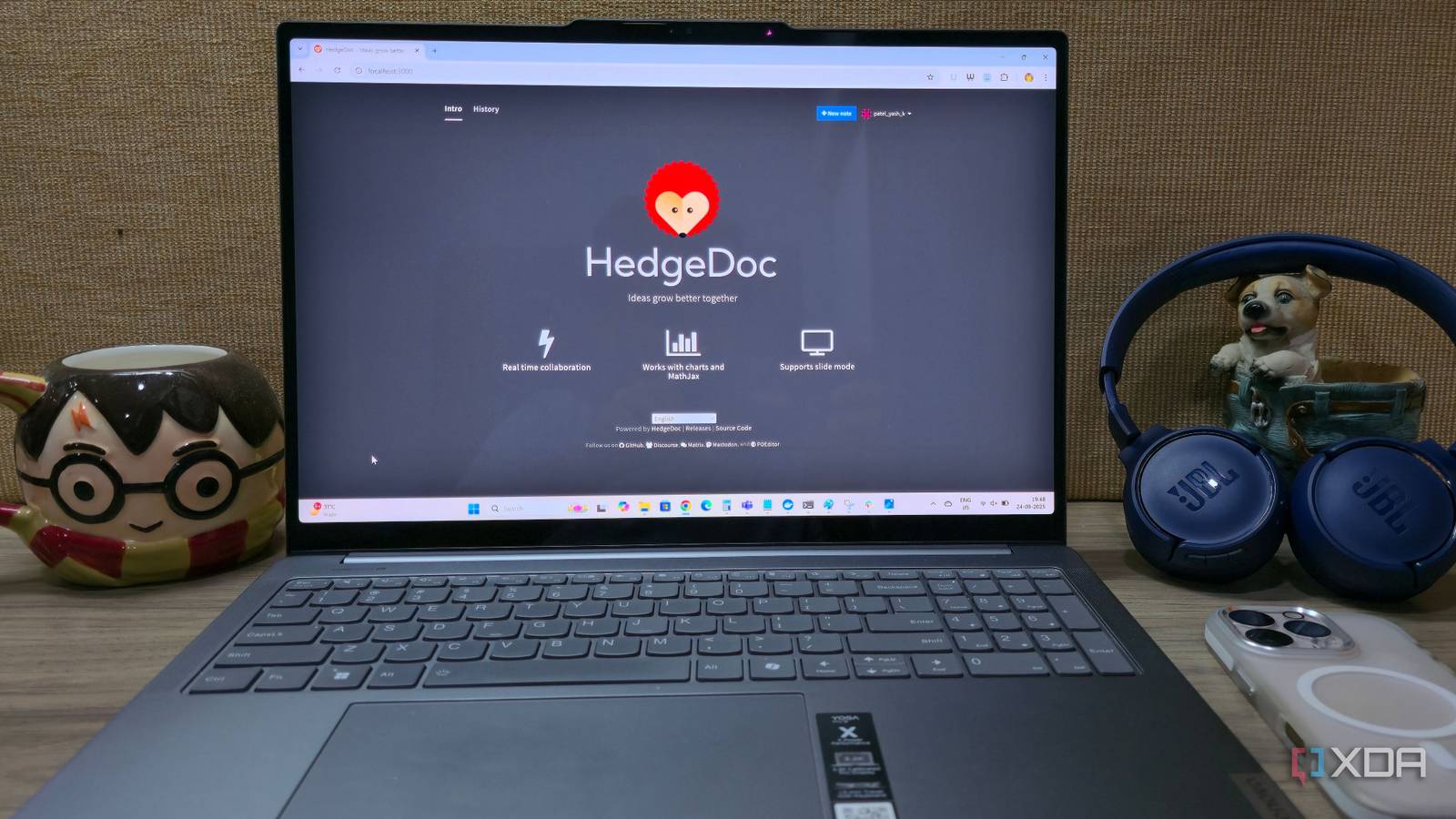Anurag is an experienced journalist and author who’s been covering tech for the past 5 years, with a focus on Windows, Android, and Apple. He’s written for sites like Android Police, Neowin, Dexerto, and MakeTechEasier. Anurag’s always pumped about tech and loves getting his hands on the latest gadgets. When he's not procrastinating, you’ll probably find him catching the newest movies in theaters or scrolling through Twitter from his bed.
Spotify is good, but the free version has ads, and the premium subscription keeps getting more expensive. On top of that, you have no control over your privacy, and there’s almost no customization. I recently started using an alternative to Spotify called Funkwhale, which you can host yourself, customize, and share on your own terms. This free and open-source audio platform is built by a passionate community, and it lets you stream music and podcasts from anywhere.
What is Funkwhale, and how is it different?
It's open-source, free, and can be self-hosted
Funkwhale is a self-hosted music streaming server and sharing platform. It’s a solid alternative to Spotify or SoundCloud, which was born in 2015 after Grooveshark’s shutdown. It has since grown into a community-driven initiative maintained by a nonprofit collective.
Funkwhale lets you stream your own library or publish original audio, everything from albums and live recordings to podcasts and mixes, and share it with friends or the wider world. Unlike Spotify’s centrally licensed catalog, Funkwhale relies on content that users upload or import. One downside here is that the library is not nearly as dense as Spotify.
Beneath the surface, the architectural difference is stark. Spotify is a closed, proprietary service running on corporate infrastructure. Funkwhale lives across a federated, decentralized network of servers called pods. Anyone can run a pod, and those pods communicate using ActivityPub, the same open protocol that powers Mastodon.
People on different Funkwhale servers can still follow channels, share streams, and discover each other’s libraries, much like email users on different domains can correspond.
There are two easy paths into Funkwhale. The simplest is to join an existing pod. Many public servers welcome new listeners and creators, and each has its own norms, focus, and moderation approach. Sign up on a pod that aligns with your taste or values, then upload music you are allowed to share, create playlists, follow channels, and socialize across the network.
The second path is to host your own pod. You can self-host Funkwhale by installing it on your own server or VPS using the official Docker Compose setup or a manual installation. The typical process is to set up PostgreSQL and Redis, clone the Funkwhale repository or pull the Docker images, configure your environment variables and domain, and then run the service behind a reverse proxy like Nginx with HTTPS enabled. Once it’s running, you create an admin account, upload or link your music and podcasts, and optionally enable federation so your podcast can interact with others.
Funkwhale has the necessary features
Good enough features to get started
Funkwhale is designed for both casual listeners and tinkerers. It is an audio player, yes, but it is also a place for social listening and discovery. The federated design allows pods to link up, so a playlist or channel on one server can circulate throughout the network.
If one pod goes offline, the rest continue unaffected, and you can still explore libraries beyond your home base. Each pod is administered by its owner or community, setting local rules, curating content, and handling moderation according to their own terms. There is no corporate algorithm promoting certain tracks, no third-party trackers, and definitely no ads.
On the listening side, Funkwhale includes the features you expect from modern streaming. You can create playlists, mark favorites, spin radio-style shuffles, and explore basic recommendations. It supports podcasts alongside music, so you can follow your favorite indie show or publish your own. Funkwhale also supports artists or show channels that people can follow across the Fediverse.
I like it a lot better than Spotify
Who doesn't like so much freedom?

Comparing Funkwhale to Spotify is really about two different approaches. With Spotify, your playlists and listening history live inside a closed system, and you stream from a massive central catalog that you do not actually own or control. On Funkwhale, you either build your own library or join a community that does, and you can take your data with you whenever you want. Pod owners can step in to moderate if needed, but the network itself is not run by any company. You get full independence.
Privacy and money work differently, too. Spotify makes its revenue through ads, upsells, and collecting large amounts of data, even if you are on a paid plan. Funkwhale flips that model with no ads, no tracking, and no third-party push.
Where Funkwhale really stands out is control. If you run your own pod, you decide the look, features, and update pace. Even if you are part of a shared pod, you still have a say. Instead of a single global rulebook, each pod decides who to connect with, what to allow, and what to highlight.
Open-source is the way to go
Data is the new oil, and I see most software providers hungry to collect as much of it as they can. I personally like to take as much control as possible, and I’ve been experimenting with a lot of open-source apps lately. If you’re not sure where to start, look at the open-source apps that are crucial for your daily use. You might also want to check out these four small open-source tools that can save you hours every week.
.png)












 English (US) ·
English (US) ·